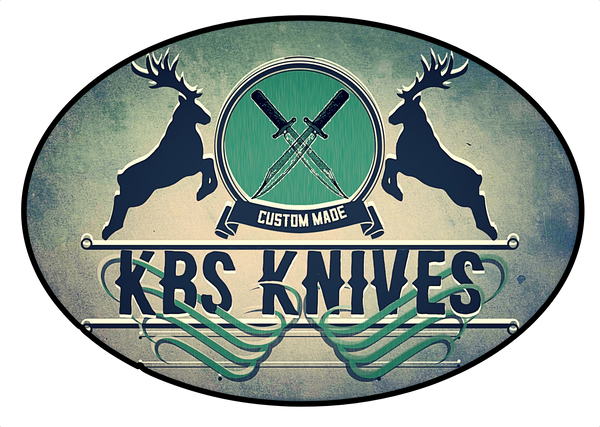
Understanding Different Types of Pocket Knives
Share
Pocket knives are more than just tools—they’re everyday companions for work, travel, or the outdoors. Each folding blade is held in place by tension for safe and smooth use. Made from corrosion resistant Damascus steel, these knives keep a sharp cutting edge for longer. The beautiful designs on the sides of the blade show both strength and craftsmanship. Whether you’re opening boxes or exploring the outdoors, there are types of pocket knives built for every purpose.
What Is a Pocket Knife?
A pocket knife is a compact, foldable knife that fits easily into your pocket, bag, or backpack. Designed for convenience, some models include multiple tools in a single design, making them ideal for everyday carry (EDC). With so many options available, understanding how to choose a pocket knife can help you find a tool that's both functional and durable.
Types of Pocket Knives
Pocket knives come in many styles, each suited for different tasks. Here's a closer look:
Traditional Folding Knives
Traditional folding knives are the classic choice, usually featuring a single blade that folds neatly into the handle. They are simple, reliable, and often prized by collectors. If you're looking for beginner-friendly pocket knives, this type is perfect.

Multitools
Multitools combine a knife blade with additional tools like screwdrivers, scissors, and can openers. Ideal for camping, hiking, or daily chores, these tools often feature Damascus steel folding knife benefits, providing sharpness, durability, and eye-catching patterns.
Switchblade Knives
Switchblades deploy the blade automatically at the push of a button. They offer quick access, but please note that it may not be legal in all locations, so check local laws first. For more information, see our switchblade knife legality guide.
Lockback Knives
Lockback knives feature a spine-lock mechanism that securely holds the blade open. These knives are safe and reliable for heavy-duty cutting tasks. Many are crafted from Damascus Steel, combining strength, functionality, and striking patterns.
Frame Lock Knives
Frame lock knives use a portion of the handle to lock the blade open. Lightweight and easy to operate, they are favored for tactical and outdoor use. Damascus Steel models often display intricate, artistic designs.
Slipjoint Knives
Slipjoint knives rely on a spring rather than a locking mechanism. While less secure, they are appreciated for their simplicity and classic design, making them popular among collectors.
Pocket Knife Comparison Table
| Pocket Knife Type | Blade Material | Key Features | Best For / Use Case | User Level |
|---|---|---|---|---|
| Traditional Folding Knife | Stainless Steel or Damascus Steel | Single folding blade, classic design | Everyday carry, simple tasks, collecting | Beginner to Expert |
| Multitool | Stainless Steel or Damascus Steel | Knife blade plus additional tools | Multi-functional use, camping, outdoor projects | Beginner to Expert |
| Switchblade (Automatic) | Stainless Steel or Damascus Steel | Blade deploys with button, quick access | Emergency situations, quick cutting tasks (check legality) | Intermediate to Expert |
| Lockback Knife | Stainless Steel or Damascus Steel | Spine-lock secures blade open | Safe cutting, heavy-duty tasks | Intermediate to Expert |
| Frame Lock Knife | Stainless Steel or Damascus Steel | Part of handle locks blade open | Lightweight carry, tactical use | Intermediate to Expert |
| Slipjoint Knife | Stainless Steel or Damascus Steel | Spring mechanism, no locking | Nostalgic/traditional use, light tasks | Beginner to Collector |
Choosing the Right Pocket Knife
When selecting a knife, consider these factors:
Blade Type
Different blade shapes serve different purposes:
- Drop Point: Versatile, ideal for everyday use and skinning.
- Clip Point: Provides precision, perfect for piercing.
- Tanto: Strong for piercing tough materials but less suitable for slicing.
Blade Material
Damascus Steel is highly valued for its strength, edge retention, and striking patterns. Choosing a Damascus steel folding knife ensures both performance and aesthetic appeal.
Intended Use
Think about your main tasks. For daily carry, lightweight folding knives are ideal. For camping or outdoor adventures, a sturdier knife or multitool may be better. For pocket knives for camping and outdoor use, durability, versatility, and ease of sharpening are key considerations.

Maintaining Your Pocket Knife
Proper care keeps your knife functional for years:
- Clean regularly: Prevent rust by wiping down the blade and handle.
- Lubricate moving parts: Keep hinges and locks smooth.
- Sharpen as needed: Damascus Steel retains its edge but requires occasional sharpening.
- Store safely: Use a dry place or sheath for added protection.
Why Damascus Steel Stands Out
Damascus Steel has a long history, originally used in ancient swords. The folding and forging techniques produce unique patterns while enhancing strength and sharpness. Modern Damascus steel folding knives combine functionality with visual appeal, making them highly sought-after for both collectors and everyday users.
FAQs About Pocket Knives
Are pocket knives legal to carry everywhere?
Laws vary by region. Some areas restrict blade length or locking mechanisms. Always check local regulations before carrying a knife.
What's the best pocket knife for beginners?
A lightweight folding knife with a simple design is ideal. Beginner-friendly pocket knives in Damascus Steel are both reliable and visually striking.
Can I use a pocket knife for camping?
Absolutely! Pocket knives are perfect for food prep, rope cutting, and general outdoor tasks. For heavier work, consider a multitool or larger blade.
Unlock the Perfect Pocket Knife for You
With so many options—from classic folding knives to multifunctional multitools—there's a pocket knife for every need. Incorporating Damascus Steel adds both functionality and aesthetic appeal. Understanding the types of pocket knives makes an informed choice. Care for your knife properly, and it will serve you reliably for years, whether for everyday carry, camping, or collecting.
